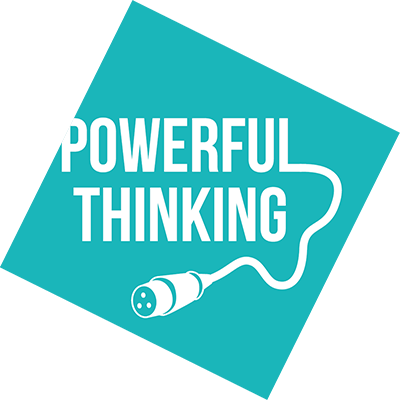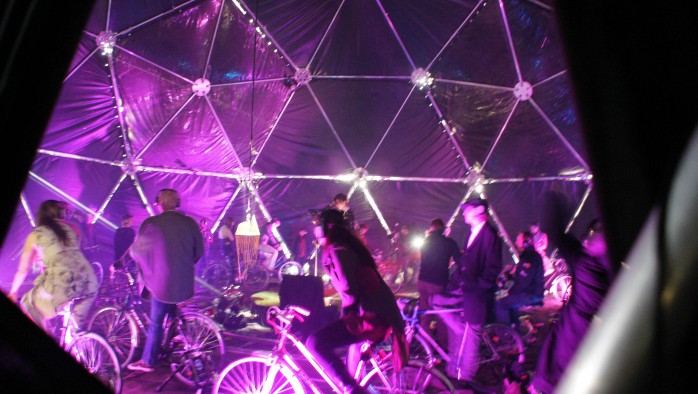Imogen Heap’s production wins Best Sustainable Initiative at the 2013 Event Awards. The production worked with the Julies Bicycle team, and was powered by Firefly Solar’s PedGen bicycles and Cygnus Solar Hybrid Generators.
UK born, Grammy Award winning artist, Imogen Heap invited Firefly Solar to the idyllic setting of her country garden in leafy Essex to provide power for a live video broadcast produced by our friends at Fruit Pie Music for ‘Earth Day’. It was Fruit Pie Music’s first ever open air live music event and broadcast production to be almost entirely self-powered (without using the national grid for the duration of the event) for Imogen Heap, which was broadcast live online on ‘Earth Day’.
Imogen Heap performed a brand new ‘Heapsong’ that she wrote during the course of the event. Using Firefly’sCygnus Solar Hybrid Generators in combination with 23 PedGen’s, Firefly were able to power a carbon free production for both the video shoot and technical rehearsals.
Firefly Solar worked alongside Julies Bicycle, Bluman Associates (2013 Event Award), Gaianova Geodesic Domes, Silent Gig and Sennheiser, to support Fruit Pie’s mission to produce an extremely environmentally friendly production using non grid power and emitting minimal light and audio pollution.
Kumar Kamalagharan, Event Producer from Fruit Pie Music explained:
“This was an immense project with an exciting aim, which presented us with lots of challenges to create an open air live event to take place completely off the grid, whilst showcasing a brand new prototype technology. The 23 cyclists, which were part of the on stage performance were in fact powering part of the stage lighting directly!”
Using a specially developed power calculator, it was estimated that over the course of the 10 days, a total of 235.5KWh of energy would be used. Approximately 140KWh would be stored as solar generated energy, while 3.5KWh would be generated by the bikes. The weather predicted for the event was cloud and rain and as a result it was estimated that only 1KWh of energy was likely to be generated directly. The shortfall of 92KWh would be topped up by a biodiesel generator.
The actual energy used for the whole project was 230.5KWh. Despite the inclement weather the solar panels actually generated 60KWh of energy, with the bikes generating a further 3KWh. This left a shortfall of only 27.5KWh that the biodiesel generator topped up.

